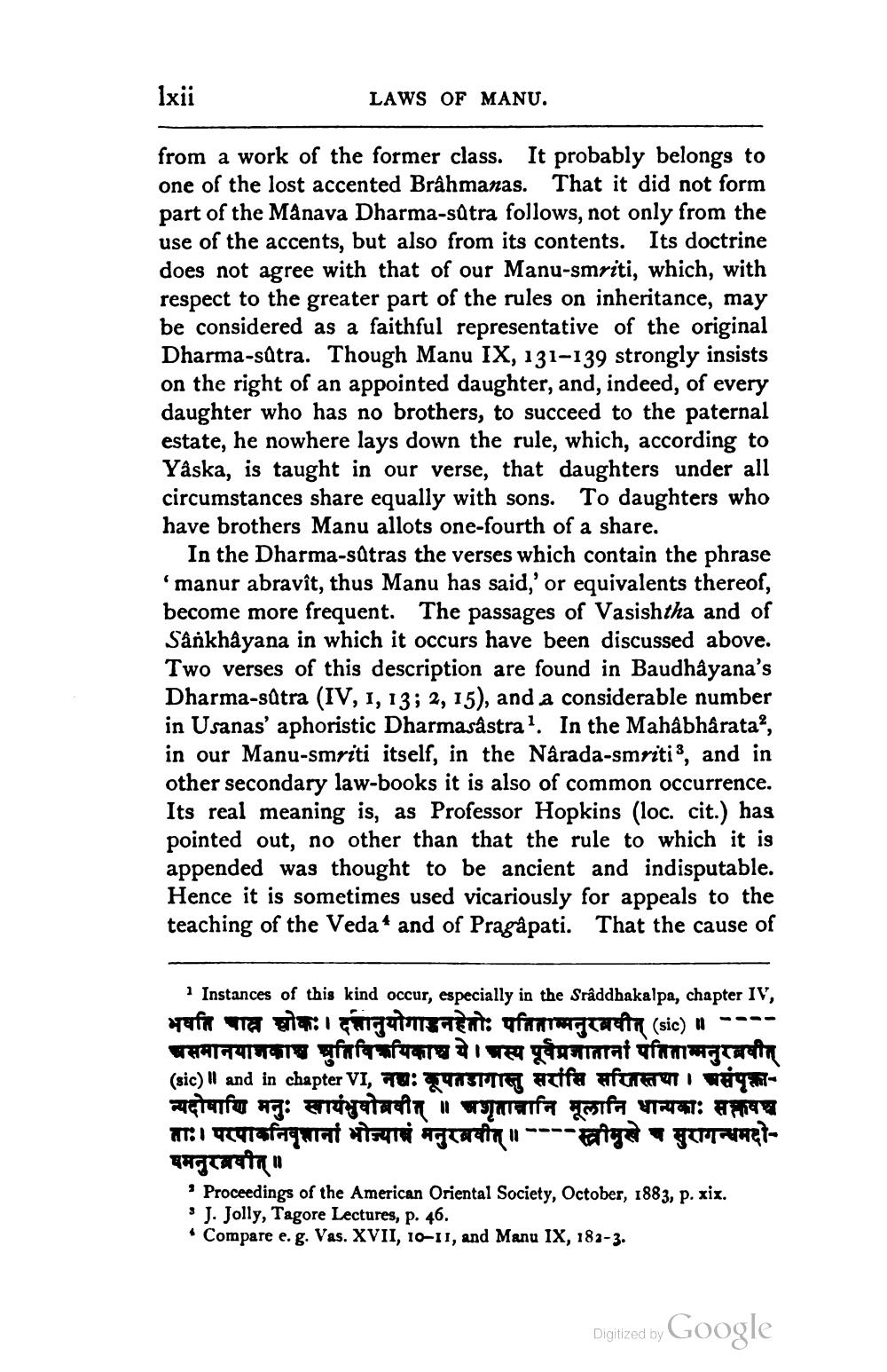________________
lxii
LAWS OF MANU.
from a work of the former class. It probably belongs to one of the lost accented Brahmanas. That it did not form part of the Mânava Dharma-sûtra follows, not only from the use of the accents, but also from its contents. Its doctrine does not agree with that of our Manu-smriti, which, with respect to the greater part of the rules on inheritance, may be considered as a faithful representative of the original Dharma-sûtra. Though Manu IX, 131-139 strongly insists on the right of an appointed daughter, and, indeed, of every daughter who has no brothers, to succeed to the paternal estate, he nowhere lays down the rule, which, according to Yâska, is taught in our verse, that daughters under all circumstances share equally with sons. To daughters who have brothers Manu allots one-fourth of a share.
In the Dharma-sûtras the verses which contain the phrase 'manur abravît, thus Manu has said,' or equivalents thereof, become more frequent. The passages of Vasishtha and of Sânkhâyana in which it occurs have been discussed above. Two verses of this description are found in Baudhâyana's Dharma-sûtra (IV, 1, 13; 2, 15), and a considerable number in Usanas' aphoristic Dharmasâstra1. In the Mahâbhârata2, in our Manu-smriti itself, in the Nârada-smriti3, and in other secondary law-books it is also of common occurrence. Its real meaning is, as Professor Hopkins (loc. cit.) has pointed out, no other than that the rule to which it is appended was thought to be ancient and indisputable. Hence it is sometimes used vicariously for appeals to the teaching of the Veda and of Pragâpati. That the cause of
1 Instances of this kind occur, especially in the Srâddhakalpa, chapter IV, भवति चात्र लोकः । दत्तानुयोगाडनहेतोः पतितान्मनुरब्रवीत् (sic) ॥ ---- असमानयाजकाश्च श्रुतिविक्रयिकाश्च ये । अस्य पूर्वप्रजातानां पतितान्मनुरब्रवीत् (sic) ॥ and in chapter VI, नद्य: कूपतडागास्तु सरांसि सरितस्तथा । असंपृक्तान्यदोषाणि मनुः स्वायंभुवोब्रवीत् ॥ अमृतावानि मूलानि धान्यकाः सक्तवच्च ताः। परपाकनिवृत्तानां भोज्याचं मनुरब्रवीत् ॥ -स्त्रीमुखे च सुरागन्धमदोघमनुरब्रवीत् ॥
1‒‒‒
'Proceedings of the American Oriental Society, October, 1883, p. xix.
J. Jolly, Tagore Lectures, p. 46.
Compare e. g. Vas. XVII, 10-11, and Manu IX, 182-3.
Digitized by
Google




